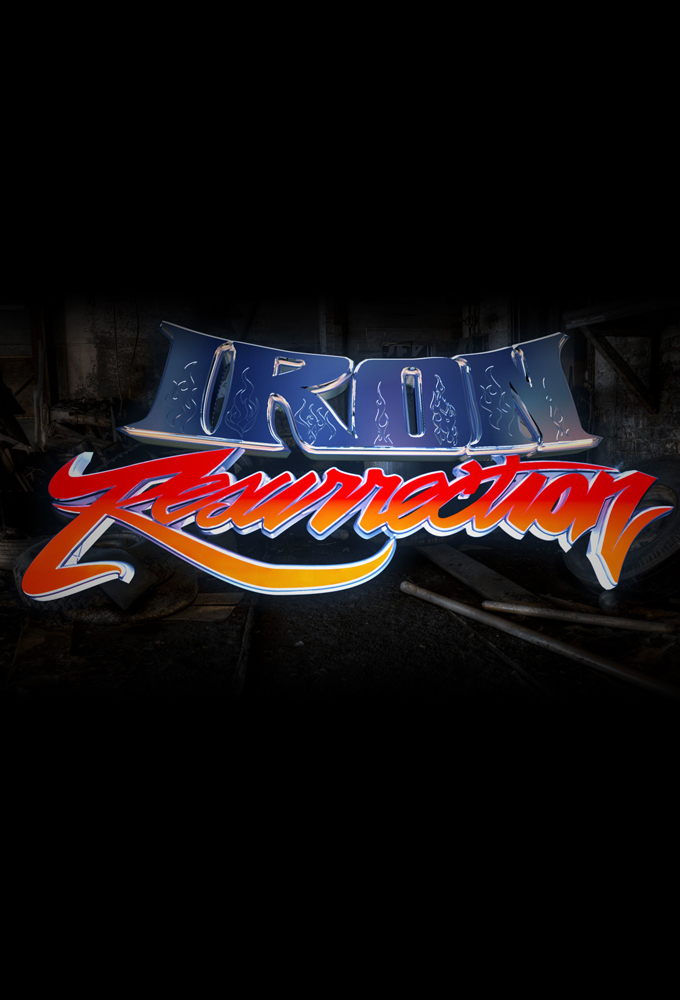When the news broke that Iron Resurrection was cancelled, fans everywhere were left scratching their heads in disbelief. This much-anticipated project had been generating buzz for months, promising to deliver an epic experience that would redefine its genre. But then, just like that, it was over before it even began. So, what exactly happened? And why does this matter to you?
Let's face it, when a big-name project gets the axe, it doesn't just affect the creators and developers. It impacts fans, investors, and even the industry as a whole. Iron Resurrection wasn't just another game or movie; it was something special, something people were genuinely excited about. So, in this article, we're going to dive deep into the reasons behind its cancellation, explore the implications, and figure out what it all means for the future.
Before we get too far, let me drop a quick disclaimer: this isn't just another clickbait piece. We're going to break down the facts, analyze the situation, and give you the full scoop. If you're a fan of Iron Resurrection or just curious about what went wrong, stick around because you're about to get the inside scoop on one of the biggest cancellations in recent memory.
Read also:Ari Erome The Rising Star In The Music Industry
Understanding Iron Resurrection: The Backstory
First things first, let's talk about what Iron Resurrection actually was. For those who might not be familiar, Iron Resurrection was a highly ambitious project that aimed to combine elements of action, sci-fi, and fantasy into a seamless experience. Whether it was planned as a game, movie, or even a series, the hype was real, and the expectations were sky-high.
Why Was It So Popular?
There were several reasons why Iron Resurrection captured the imagination of so many people:
- Innovative Concept: The project promised to deliver a fresh take on familiar tropes, blending genres in a way that felt both nostalgic and groundbreaking.
- Top-Tier Talent: The team behind Iron Resurrection included some of the biggest names in the industry, from award-winning directors to cutting-edge developers.
- Fan Engagement: From the get-go, the creators made a point of involving fans in the process, sharing concept art, teasers, and behind-the-scenes content that kept the excitement alive.
With all these factors working in its favor, it seemed like Iron Resurrection was destined for greatness. So, naturally, when the cancellation was announced, it came as a massive shock to everyone involved.
The Big Question: Why Was Iron Resurrection Cancelled?
Now, here's where things get interesting. The official reason given for Iron Resurrection's cancellation was "creative differences." If you've been around the block a few times, you know that's usually code for something more complicated. But let's break it down step by step.
Creative Differences: What Does That Even Mean?
In the world of entertainment, "creative differences" can mean a lot of things. Sometimes, it's about conflicting visions between the director and the studio. Other times, it's about budget constraints or logistical issues. In the case of Iron Resurrection, it seems like there were multiple factors at play:
- Financial Pressures: Big projects require big budgets, and sometimes the numbers just don't add up. It's possible that the production costs exceeded what the studio was willing to invest.
- Timing Issues: The entertainment industry is all about timing, and if a project doesn't align with current trends or release schedules, it can get shelved.
- Internal Conflicts: Let's not forget that large teams often have differing opinions on how a project should be executed. When those differences can't be resolved, cancellation becomes the only option.
While we may never know the full story behind the scenes, one thing is clear: the decision to cancel Iron Resurrection wasn't made lightly.
Read also:Chip Batchelder The Man Revolutionizing Tech Innovation
The Impact on Fans and the Industry
So, what happens when a project as big as Iron Resurrection gets cancelled? The effects ripple outward, affecting everyone from the creators to the fans and even the broader industry.
How Fans Are Feeling
For fans, the cancellation of Iron Resurrection is a major letdown. Many had invested time and energy into following the project, sharing their excitement with friends, and even pre-ordering merchandise. The sudden announcement left them feeling disillusioned and frustrated.
But it's not just about disappointment. Fans are also concerned about the future of similar projects. If Iron Resurrection couldn't make it, what does that mean for other ambitious ventures in the pipeline?
The Broader Industry Implications
From an industry perspective, the cancellation of Iron Resurrection sends a clear message: taking risks can be costly. Studios may become more hesitant to greenlight projects that push boundaries or challenge the status quo. This could lead to a more conservative approach, where creativity takes a backseat to profitability.
On the flip side, it could also inspire creators to think outside the box and find new ways to bring their visions to life. After all, necessity is the mother of invention, right?
Lessons Learned: What Can We Take Away From This?
Every failure is an opportunity to learn, and the cancellation of Iron Resurrection is no exception. Here are a few key takeaways:
- Transparency Matters: Fans appreciate honesty. If a project is in trouble, being upfront about the challenges can go a long way in maintaining trust.
- Balance is Key: Striking the right balance between creativity and practicality is crucial. While it's important to dream big, it's equally important to stay grounded in reality.
- Community Engagement: Building a strong community around a project can provide valuable feedback and support. It can also help weather the storm when things don't go as planned.
By learning from these lessons, future projects can avoid some of the pitfalls that led to Iron Resurrection's downfall.
Could Iron Resurrection Make a Comeback?
Now, here's the question on everyone's mind: is there any chance that Iron Resurrection could be resurrected (pun intended)? The short answer is yes, but it would require a significant shift in circumstances.
Possible Scenarios for a Revival
There are a few ways this could happen:
- New Funding: If a different studio or investor steps in with the necessary resources, the project could be revived.
- Revised Vision: Sometimes, a fresh perspective is all it takes to breathe new life into a project. By revisiting the original concept and making adjustments, the team could create something even better.
- Fan Demand: In today's world, fan power can't be underestimated. If enough people show interest and support, it could sway decision-makers to reconsider.
While nothing is set in stone, the possibility of a comeback keeps hope alive for many fans.
Iron Resurrection: The Legacy
Even though Iron Resurrection was cancelled, its legacy lives on. The buzz it generated, the art it inspired, and the conversations it sparked will continue to resonate in the entertainment community.
What Does This Mean for the Future?
The cancellation of Iron Resurrection serves as a reminder of the risks and rewards of pursuing bold, ambitious projects. While not every venture will succeed, those that do can change the landscape of the industry forever.
For fans, it's a lesson in resilience. Even when things don't go as planned, the passion and enthusiasm they bring can make a difference. And for creators, it's a call to action to keep pushing boundaries and exploring new possibilities.
Conclusion: What's Next?
As we wrap up this deep dive into the cancellation of Iron Resurrection, it's clear that this story is far from over. While the immediate future may be uncertain, the lessons learned and the passion generated will undoubtedly influence future projects.
So, what can you do? If you're a fan, keep the conversation going. Share your thoughts, support other projects, and let your voice be heard. If you're a creator, take inspiration from the risks and rewards of Iron Resurrection and use them to fuel your own endeavors.
And remember, just because something gets cancelled doesn't mean it's gone forever. Stranger things have happened, and who knows? Maybe one day, Iron Resurrection will rise again.
Table of Contents
Understanding Iron Resurrection: The Backstory
The Big Question: Why Was Iron Resurrection Cancelled?
Creative Differences: What Does That Even Mean?
The Impact on Fans and the Industry
The Broader Industry Implications
Lessons Learned: What Can We Take Away From This?
Could Iron Resurrection Make a Comeback?
Possible Scenarios for a Revival
What Does This Mean for the Future?



